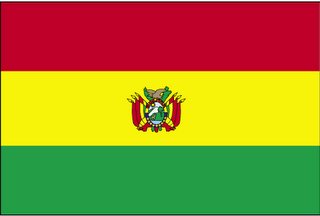Reciprocity: Fair Is Actually Fair
La Paz (DigitalWarriorMedia): Bolivia's Foreign Affairs Minister, David Choquehuanca submitted a resolution that now requires U.S. citizens wishing to visit Bolivia to request  entry visas.
entry visas.
Choquehuanca said the resolution will automatically be implemented since it has been approved by the Foreign Ministry.
The policy establishes different categorical designations: Group 1 for visa exemption, Group 2 for visas without consultation, and Group 3 for visas that require consultation.
Eight months ago the exemption list and visa extensions for tourists were amended by a Cabinet Supreme Decree so that U.S. citizens went from Group 1 to Group 3.
“Bolivia, even as a small country - called 'underdeveloped' - has as much dignity as any other country”, said Evo Morales at the time, arguing that it was a legitimate policy based on the international criteria of “reciprocity”. Bolivians must apply for visas to visit the United States.
President Morales added that the decision was also related to, “problems faced by some brother leaders, including politicians, who must have a visa to travel to United States”.
In February 2006, MAS congresswoman Leonilda Zurita, had her U.S. visa revoked on unsupported claims of terrorism ties. And Dr. Waskar T. Ari Chachaki, an Aymaran historian, was hired by the University of Nebraska to teach Latin American history in 2005. Dr. Ari's visa was withheld by the U.S. State Department without explanation for almost two years until July 2007.
“We respect the government of the United States but we also demand respect,” he emphasized recalling that in March 2006 a U.S. citizen organized a dynamite attack against two hotels in the capital La Paz, killing two people.
capital La Paz, killing two people.
“We must have a stricter control over foreigners visiting Bolivia”, maintained President Morales.
 entry visas.
entry visas.Choquehuanca said the resolution will automatically be implemented since it has been approved by the Foreign Ministry.
The policy establishes different categorical designations: Group 1 for visa exemption, Group 2 for visas without consultation, and Group 3 for visas that require consultation.
Eight months ago the exemption list and visa extensions for tourists were amended by a Cabinet Supreme Decree so that U.S. citizens went from Group 1 to Group 3.
“Bolivia, even as a small country - called 'underdeveloped' - has as much dignity as any other country”, said Evo Morales at the time, arguing that it was a legitimate policy based on the international criteria of “reciprocity”. Bolivians must apply for visas to visit the United States.
President Morales added that the decision was also related to, “problems faced by some brother leaders, including politicians, who must have a visa to travel to United States”.
In February 2006, MAS congresswoman Leonilda Zurita, had her U.S. visa revoked on unsupported claims of terrorism ties. And Dr. Waskar T. Ari Chachaki, an Aymaran historian, was hired by the University of Nebraska to teach Latin American history in 2005. Dr. Ari's visa was withheld by the U.S. State Department without explanation for almost two years until July 2007.
“We respect the government of the United States but we also demand respect,” he emphasized recalling that in March 2006 a U.S. citizen organized a dynamite attack against two hotels in the
 capital La Paz, killing two people.
capital La Paz, killing two people.“We must have a stricter control over foreigners visiting Bolivia”, maintained President Morales.



